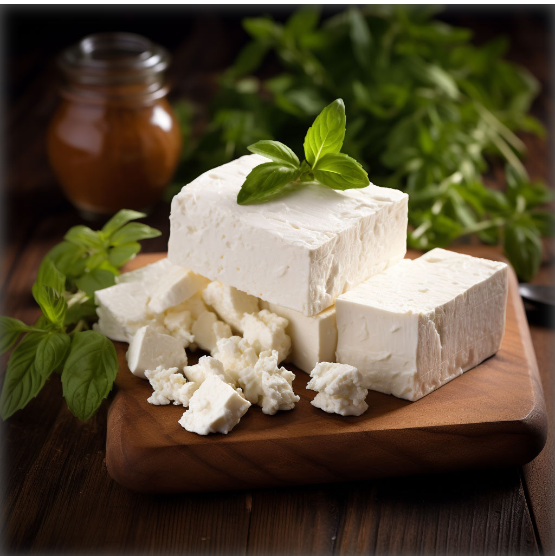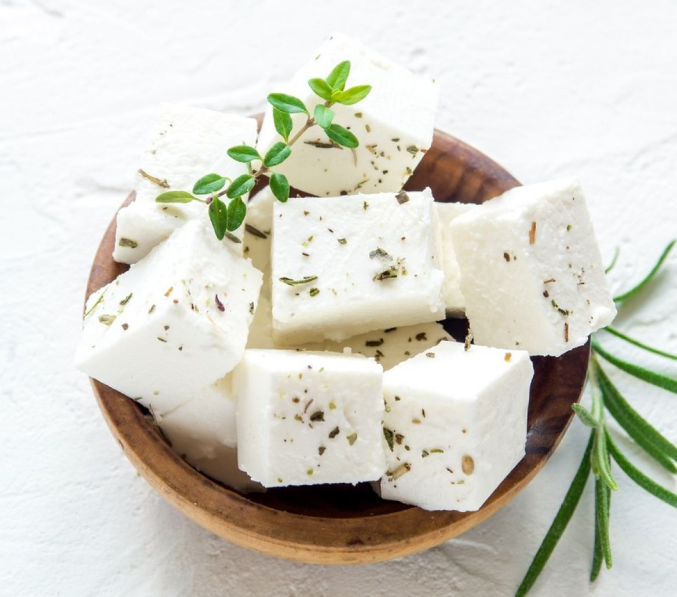Feta cheese is a popular type of cheese, enjoyed by many. For those following a Halal diet, understanding the ingredients in their food is crucial. According to religious dietary guidelines, all ingredients must be Halal-compliant. This means that Feta cheese, like any other food, must meet Halal standards. Determining whether a specific cheese is Halal can be challenging due to the variety available. However, Feta is often sought after by those looking to include it in their list of permissible Halal foods.

Given the variety of cheese types and brands available, making informed choices is crucial for those aiming to maintain a proper diet. A well-curated list highlights popular options, including traditional cheddar and specialty cheeses. This empowers individuals to select flavorful cheeses that align with their taste preferences. In my experience, opting for Halal-certified cheese enhances the dining experience while adhering to dietary guidelines.
So, let’s find out: Is Feta Cheese Halal?
Is Feta Cheese Halal?
Feta cheese is a popular ingredient in many dishes. For Muslims, the concern is whether it is halal, or permissible to eat according to Islamic dietary laws. The key factor in determining if feta cheese is halal is the source of the rennet used in its production. Rennet is an enzyme that helps curdle the milk, and it can be derived from animals, plants, or microbes.
According to Islamic dietary guidelines, rennet from halal-slaughtered animals, plants, or microbial sources is permissible. However, if the rennet comes from animals not slaughtered according to Islamic law, the cheese would not be halal.

Many commercial feta cheeses use microbial or plant-based rennet, making them halal. However, it’s essential to check the product label or contact the manufacturer to confirm the source of the rennet. Look for halal certification on the packaging as a reliable indicator.
In conclusion, while feta cheese can be halal, it’s crucial to verify the rennet source. By checking labels or seeking halal-certified products, Muslims can enjoy feta cheese while adhering to their dietary guidelines.
Look Out For When Eating Feta Cheese
When consuming Feta cheese in accordance with Islamic dietary guidelines, here’s what you need to consider:
- Rennet Type: Check the type of rennet used. Rennet is an enzyme that coagulates milk to form cheese. There are three main types:
- Animal Rennet: Derived from slaughtered animals. If not halal slaughtered, the cheese is non-halal.
- Microbial Rennet: Produced by microorganisms, generally considered halal.
- Plant-Based Rennet: Extracted from plants (e.g., thistle or fig leaves), also halal.
- Label Verification: Look for halal certification on the label. Brands like Miller’s Feta Cheese, Friendship Feta Cheese, and Zinal Feta Cheese offer halal options.
Remember, understanding the rennet source ensures you enjoy Feta cheese while adhering to halal principles.
Islamic View on Eating Feta Cheese
The use of Rennet in Feta cheese has sparked considerable debate among scholars. Their opinions diverge, but the key factor lies in how the animal providing the Rennet was treated. If the animal was not halal-slaughtered or died naturally, the Rennet is considered impure, rendering the cheese non-halal.
Debating Feta Cheese and Halal Considerations:
This viewpoint is rooted in Ayah 3 of Surat al-Maidah, which prohibits the consumption of dead animals.
Another perspective emerges from Hanafi and Hanbali schools of thought. While they also emphasize Rennet’s source, there’s a nuanced view. Some argue that if Prophet Mohammed (peace be upon him) and his companions consumed cheese from fire-worshippers, Christians, and Jews without issue, perhaps Feta cheese could be permissible.
To navigate this, it’s best to verify the origin of the Rennet. I refrain from purchasing anything that lacks halal certification, aligning with Islamic principles as faithfully as possible.
Feta Cheese Ingredients
Feta Cheese Ingredients: Feta cheese is traditionally made from a combination of sheep’s and goat’s milk. Its salty, tangy flavor and crumbly texture set it apart from other cheeses. Authentic Greek Feta cheese acquires its unique taste through brine aging.
| Ingredient | Halal Status | Source |
|---|---|---|
| Milk (sheep or goat) | Generally halal | Animal-derived |
| Rennet | Varies | – Animal rennet: Derived from slaughtered animals (may not be halal) – Microbial rennet: Halal – Plant-based rennet: Halal |
| Salt | Halal | Mineral source |
| Vinegar | Halal | Plant-based |
| Bacteria culture | Halal | prepares in lab |
To ensure a halal option, carefully examine labels and opt for reputable brands like Miller’s Feta Cheese, Friendship Feta Cheese, or Zinal Feta Cheese.
Brief Knowledge of Feta Cheese
Feta cheese, originating from Greece and with a rich history spanning centuries, is a soft, crumbly cheese renowned for its salty flavor. It is crafted from sheep’s milk or a blend of sheep and goat milk. The unique production process involves curdling the milk, followed by fermentation in wooden barrels or metal containers over several months.

Once matured, the Feta is cut into slices or blocks, salted, and immersed in a brine solution. This method imparts tanginess and maintains its delightful crumbly texture. While some may draw comparisons to Parmesan cheese, Feta stands apart. I enjoy incorporating Feta into my cooking; it elevates dishes with its distinct salty and tangy notes.
Halal Feta Cheese Brands
In recent times, an increasing number of halal-certified brands have produced Feta cheese. These brands avoid using Rennet and instead employ vegetarian methods, such as microbial enzymes. These practices adhere to strict guidelines set by halal certification authorities, ensuring that these cheeses are safe for individuals following Islamic dietary restrictions.

I’ve noticed a growing availability of these halal-certified cheeses in the market. Previously, finding them was challenging, but that’s no longer the case. It’s heartening to witness food options that align with religious rules while delivering excellent taste.
Conclusion
In conclusion, whether feta cheese is halal depends on its ingredients and the production process. For feta to be considered halal, the milk must come from halal animals, and any enzymes or rennet used must also be derived from halal sources.
Additionally, the cheese should not be contaminated with any non-halal substances during its production. Muslims seeking to ensure that their consumption aligns with Islamic dietary guidelines should look for feta cheese that is certified halal by a reliable authority. By doing so, they can enjoy this delicious cheese while adhering to their faith.
FAQs
Can Muslims have cheese?
Within the Muslim community, questions often arise about whether Feta, Brie, Cheddar, or goat cheese are permissible. Islamic dietary law distinguishes between halal (allowed) and haram (forbidden) foods. The critical factor in cheese is the type of rennet used. Rennet sourced from non-halal animals renders the cheese haram. Fortunately, many cheeses now utilize microbial rennet, which is halal. As a result, these cheeses are considered acceptable for Muslims.
Is cheddar cheese haram or halal?
Cheddar cheese’s permissibility hinges on its ingredients and preparation. Cheddar can be considered haram if it contains animal rennet sourced from non-halal animals. However, if it is made using enzymes from halal sources or is certified as halal, then it aligns with Islamic dietary guidelines and is permissible.
If you want to know more, click here.
Can Muslims eat feta cheese?
Turkish feta is halal even when it contains rennet because the cow is slaughtered under Islamic dietary guidelines. so, Muslims can eat it.
